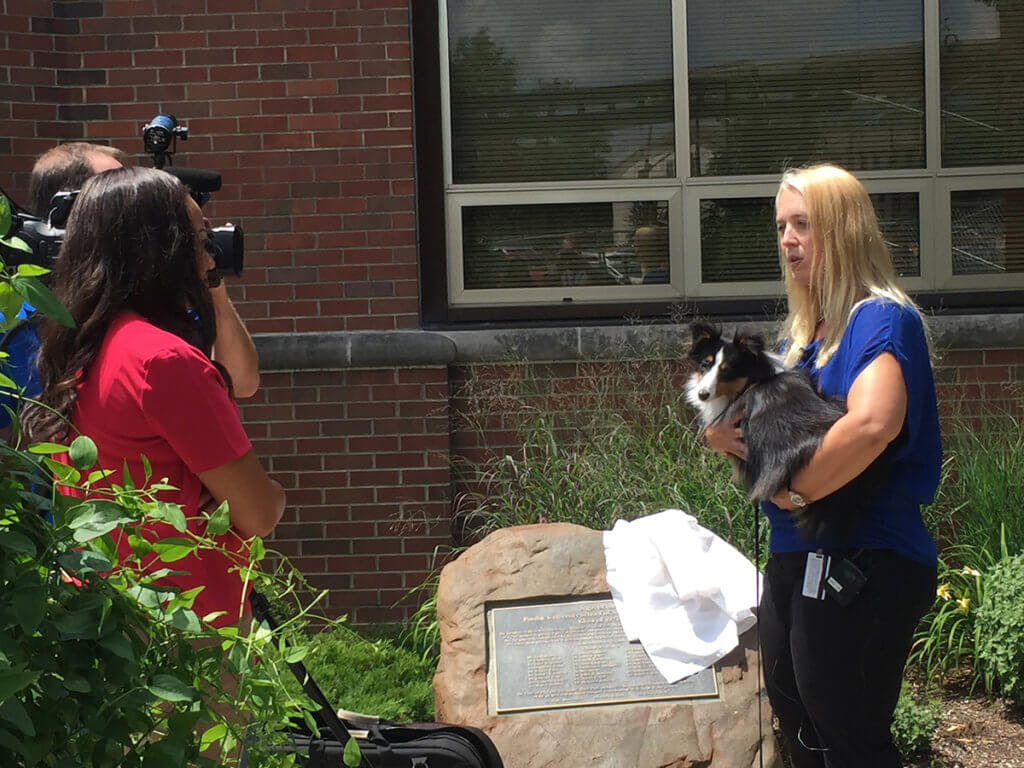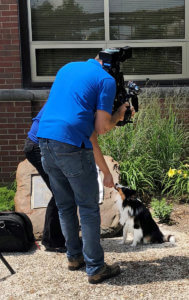
With some help from Noah, a one-year-old Shetland Sheepdog belonging to Versa Technologist Deborah Ramirez, Wellness Clinician Lori Corriveau of the Small Animal Community Practice explains tips for helping pets cope with summer heat, during an interview for WLFI-TV.
As the summer heat intensifies, pet owners need to think from nose to paws when keeping their pets cool and well hydrated, especially if the dog or cat is overweight, elderly, or a specific breed, according to a Purdue University College of Veterinary Medicine wellness clinician. “There are some breeds, such as short-nosed pugs or Persian cats, that are not able to pant or breathe well in the heat,” says Dr. Lori Corriveau, pet wellness veterinarian in the Veterinary Teaching Hospital’s Small Animal Community Practice. “When an animal is overheated it excessively pants or drools because it cannot sweat like humans. Its nose structures, as well as age or being overweight, can prevent its body from naturally cooling off.”
Signs of overheating include the animal looking droopy, struggling to breathe, showing signs of weakness or dizziness, or collapsing. More severe symptoms can include seizures, bloody diarrhea, or vomiting. If an animal appears to be overheated, provide it with cool, not cold water, as well as a fan to circulate air, Dr. Corriveau says. If the symptoms are more severe, then a veterinarian needs to see the animal.

Noah commands the attention of the WLFI-TV videographer who captured additional video for a story about pets and hot weather that aired on the station Wednesday, July 11.
Here are additional tips from Dr. Corriveau for pets in hot weather:
- Shade and water is a must for any outdoor pet. The water should be in a sturdy container to prevent spills.
- Cars are too hot, even if the windows are down.
- Exercise dogs in the morning or at night when temperatures are cooler.
- Use your hand to test the heat of the sidewalk or asphalt. Without shoes, pets’ paw pads can blister. If the dog has to be outside, there are booties or shoes available.
- Exotics, especially chinchillas and guinea pigs, are very sensitive to heat. Provide extra water and a fan.
Dr. Corriveau helped spread the word about these helpful tips in an interview broadcast on WLFI-TV in Lafayette on Wednesday, June 11. Click here to view the story. The story also included comments from West Lafayette Police Department Code Enforcement Supervisor Rick Walker about the problem of pet owners leaving their animals in cars.
